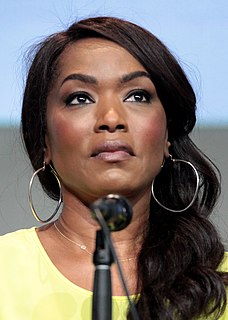A Quote by Jaggi Vasudev
We have to grow in such a way that our growth is not at the cost of something else.
Quote Topics
Related Quotes
The strong and undeniable fundamentals of low-cost clean energy and the cheapest petrochemical feed-stocks in the world will prevail we believe and we're seeing the demand pool beginning to grow. We have continued to position ourselves in a way that will catch this very sustainable and fundamentally supported wave of volume growth and at the same time, help our customer base achieve their lofty goals of growth as well.
I advise other companies' CEOs, don't fall into the trap where you go, 'Where's the growth? Where's the growth?' Where's the growth?' They feel a tremendous pressure to grow. Well, sometimes you can't grow. Sometimes you don't want to grow. In certain businesses, growth means you either take on bad clients, excess risk, or too much leverage.
Do we want more of the same regulatory mission creep that has helped to harm America's poor and middle class? Do we want more of the policies that have stifled growth? Or do we want something else, something different, something that focuses on the need to reevaluate the size, the scope, the cost, the reach of the federal government?
You can't always do that which you can do in your sleep. That doesn't fulfill an artist. You're looking for places where you can grow, in some way, whether it's a large way or a small way. I want to grow as an artist, as a person and as a woman. I want to enjoy myself and my life and the company that I'm keeping. I want to bring something to the table that's different than anything else would bring, but that has its place and value, and then keep moving.
If there's something else already out there in the universe, it would almost certainly have puts limits on our growth of intelligence. And the reason it would have put limits on us is because it doesn't want us to grow so intelligent that we would one day maybe take away their superpowered intelligence. Whatever advanced intelligence evolves, it always puts a roadblock in the way of other intelligences evolving. And the reason this happens is so nobody can take away one's power, no matter how far up the ladder they've gone.
It's a critical fallacy of our times ... that a writer should 'grow,' 'change,' or 'develop.' This fallacy causes us to expect from children or radishes: 'grow,' or there's something wrong with you. But writers are not radishes. If you look at what most writers actually do, it resembles a theme with variations more than it does the popular notion of growth.
Growth is the mantra of our society because the economy can't remain healthy without growth.Impregnable monopolies aside (and these are few), profits are both the hallmark of capitalism and its Achilles heel, for no business can permanently maintain its prices much above its costs. There is only one way in which profits can be perpetuated; a business-or an entire economy-must grow.



































